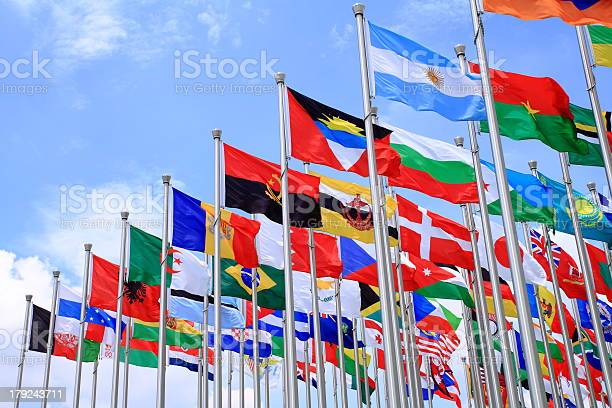Resetting Pakistan's Strategic Compass
- Saleem Qamar Butt
- Mar 30, 2021
- 4 min read
Updated: Aug 29, 2024
In the most recent past, our diplomatic circles as if gasping for oxygen, expressed sigh of relief on some brief diplomatic statements of appreciation about Pakistan by three small island countries, which was also given a lot of media coverage. Then came an unannounced visit by US Secretary Defence General retired Lloyd Austin to Afghanistan; and on his way back on Monday 22 March 2021, he made a telephone call to Pakistan’s COAS wherein he is said to have ‘expressed gratitude for Islamabad’s continued support for the Afghan peace process and reinforced the United States’ commitment to maintaining a strong bilateral defence relationship with Pakistan’. Reportedly, Secretary Defence Austin in his conversation with the Army Chief reassured him that the US would like to continue its cooperation with Pakistan in areas of “common interest”. Earlier during his confirmation hearing Austin had told the US Senate Armed Services Committee that he saw Pakistan as an “essential partner” in Afghan peace process and that building “relationships with Pakistan’s military would provide openings for the United States and Pakistan to cooperate on key issues”.
Currently the Joe Biden administration is reviewing the deal signed by its predecessor Trump with the Taliban in February 2020 under which US troops are to withdraw from Afghanistan by May 1. At a news conference in Kabul, Austin insisted on the need to bring the Afghan war to “a responsible end” and refused to give a final deadline for the withdrawal of US troops from Afghanistan; ignoring a Taliban warning that US troops in Afghanistan would face the consequences of Washington’s refusal to meet the May 1 deadline and saying that he believed the US commanders had the capability to repel attacks on their troops and had the right to defend themselves. It goes without saying that Pakistan wishes the US, incumbent Afghan government and Afghan Taliban to progress on the implementation of their Feb 2020 deal and build further on it so that a peaceful political settlement could be achieved. Nevertheless, Austin’s visit and the subsequent statements coming out can be taken as clear indication of potential US change of heart and taking the same old democrat and establishment’s line on the subject that is at cross purpose to Pakistan’s 20 years long efforts to bring peace in Afghanistan with due support from China, Russia and some other countries.
So what is left in common even on Afghanistan peace; what to talk of other areas of common interest between the US and Pakistan? It is worth noting that in another statement about Austin’s regional visit that included India and not Pakistan, the Pentagon noted that “Secretary Austin came away from his meetings in New Delhi encouraged by the response from an increasingly important partner amid today’s rapidly shifting international dynamics”. The whole world knows that the US is confronted with great internal and external challenges with no good strategic solutions on Syria, Iraq, Yemen and above all Afghanistan quagmire. In the last two decades, Pakistan has won multifaceted war against terrorism on its own soil as a front lines US’ partner and as best non NATO ally at a very heavy socio-psycho, political, economic and human cost. Again, on requests from USA and her other allies, Pakistan along with some regional countries made sincerest efforts to bring peace in Afghanistan, which no other country or alliance could do. But ironically, once again Pakistan’s both big achievements appear to be sacrificed at the altar of shifting strategic preferences.
In view of the well understood global realignments, it becomes imperative to undertake serious review of our strategic thinking about security, economic and diplomatic pursuits to regain lost diplomatic and strategic spaces. In my opinion, some of the important questions that need to be reconsidered are: Is there anything to rejoice by Pakistan and other peace supporters or instead feel concerned about the consequences of Austin’s visit to India and Afghanistan? __ Why has the USA always preferred to keep a narrow focus on maintaining time and objectives specific military and intelligence relations with Pakistan rather than wholesome normal state to state relations equally involving all other socio-economic and scientific fields? __ Why does American top leadership always prefers to visit India and Afghanistan and keep Pakistan’ leadership engaged by short term contracted third or fourth tier representatives with known anti Pakistan bias?__ While strategic results are achieved as well as expected from Pakistan, yet why Pakistan is kept under pressure by FATF and by other discriminatory sanction regimes?__ Would Pakistan ever be allowed to live without oxygen line provided by World Bank, IMF and other IFIs to enjoy economic sovereignty?__ What are Pakistan’s strategic gains and losses in the last 20 years of coercive cooperation with US and allies?__ Would appeaement policies at the cost of compromising long held strategic interests serve any natinal purpose in short or long terms?__ Why US president and secretaries don’t interact with their counterparts in Pakistan?__ And why do American leadership feels safe and comfortable in visiting Afghanistan and not Pakistan?— The short answer: it is managed by exploitation of our internal fault lines and we were forced to accept this undesirable lowly treatment in the last two decades for some known and other unknown reasons.
But it is never too late to put the directions right. While Afghan peace process may seem ‘one step forward and two steps backward’ and IIOJ&K burning under long siege by India, Pakistan needs to keep its strategic compass well set as well as restore much belated diplomacy on the principle of reciprocity and equality of status for the whole of government approach, graduated responses and deliberate oversight. Pakistan’s one sided wish that it should not be seen through the prism of any other country has always fallen on deaf ears by the US. Pakistan must continue to put its own house in order on all fronts with strategic focus on ensuring security through evolving international realignments and economic interdependence. Pakistan’s geo-strategic importance, military capabilities and geo-economic potential must be utilized with pride, self respect and honesty for the betterment of the people of Pakistan and for acquiring respectable place among the community of nations. Nevertheless, beware of the invisible implants, Trojan horses and rumour mongers who are always there to undermine and sabotage any patriotic thinking or efforts to get the country free from colonial shackles.
24 March 2021









Comments